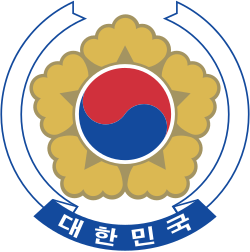Political parties
The ruling Democratic Justice Party (DJP) of President Chun Doo-hwan managed to remain the largest party in the National Assembly but faced a tougher challenge from the united opposition.
The New Korean Democratic Party (NKDP) was formed by former members of the New Democratic Party, notably opposition leaders Kim Dae-jung and Kim Young-sam despite being still barred from running. The party made strong gains across the country, largely thanks to its focus on greater democratic rights.
The Korean National Party had been formed by former members of the Democratic Republican Party in the run-up to the 1981 elections. After making some key gains, the party lost ground in these elections, largely thanks to the gains of the NKDP.
The opposition Democratic Korea Party had been the premier opposition party following the 1981 elections, but it suffered major defections to the NKDP.
This page is based on this
Wikipedia article Text is available under the
CC BY-SA 4.0 license; additional terms may apply.
Images, videos and audio are available under their respective licenses.



